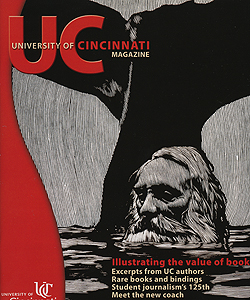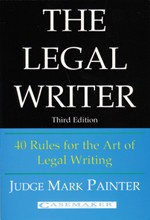UC alum Mark Painter, an Ohio District Court of Appeals judge, makes a strong case against legalese.
by Mary Niehaus
He stops short of calling "legalese" un-American, but Judge Mark Painter, A&S '70, JD '73, is relentless in his advocacy for legal documents everyone can understand.



